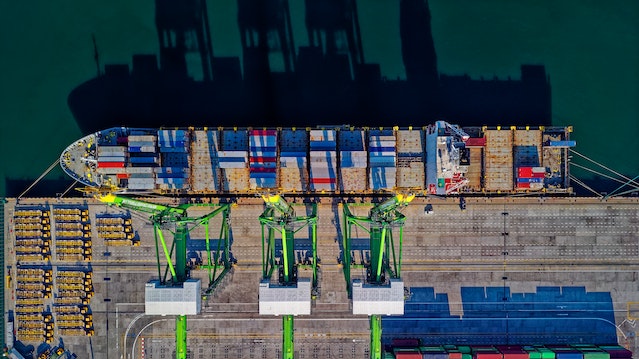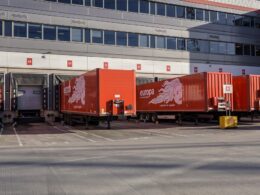Navigating customs for international trade and ensuring compliance with regulations can be a complex and daunting task. As businesses expand their operations globally, it becomes crucial to understand the intricacies of customs procedures and streamline processes for efficient trade operations. The key to success lies in acquiring insider tips. They can help overcome common challenges and ensure a smooth flow of goods across borders. In this post, we uncover valuable insights and strategies that will revolutionize the way you approach customs. Get ready to unlock the secrets to streamlined international trade and compliance, paving the way for enhanced productivity and growth on a global scale.
Understanding Customs Regulations and Compliance
Customs play a vital role in facilitating the movement of goods across borders while also ensuring compliance with regulations and protecting national interests. Complying with customs regulations is of utmost importance. It helps maintain the integrity of international trade and promotes fair competition. Failure to adhere to these regulations can result in severe consequences. For example, shipment delays, costly fines, reputational damage, or even the suspension of trade activities. So in order to stay up-to-date with ever-changing customs regulations, businesses should establish robust compliance programs and regularly monitor updates from customs authorities. They should also engage in industry associations, seek professional advice, and invest in automation tools and technologies that streamline compliance processes. If they prioritize compliance and stay informed, businesses can confidently navigate customs. This will minimize risks and unlock the full potential of international trade.

Key Documents and Paperwork
Various documents are essential for smooth and compliant trade transactions. That includes invoices and purchase orders, bills of lading, and certificates of origin. Accurate and complete paperwork is crucial as it ensures transparency and facilitates customs clearance. It also helps mitigate risks associated with discrepancies or errors. In order to organize and maintain records effectively, businesses should establish a systematic filing system, utilize digital documentation solutions, and train staff on proper document management practices. Leveraging technology can further streamline the documentation process, reducing manual errors and saving time. Automation tools like document management systems, electronic signatures, and cloud storage enable secure and accessible record-keeping, allowing businesses to easily retrieve and share necessary documents with customs authorities, suppliers, or customers.

Classification and Tariffs
Proper product classification is of utmost importance in international trade. It involves categorizing goods based on specific criteria, such as their composition, intended use, or functionality. Accurate classification is crucial as it determines the applicable tariffs, trade restrictions, and regulatory requirements for the goods. It ensures compliance with customs regulations, prevents potential delays or penalties, and facilitates smoother customs clearance. So to achieve accurate product classification and tariff determination, businesses should invest in comprehensive product knowledge and consult official customs resources and tariff schedules.
They should seek professional advice from customs brokers or trade experts and utilize classification tools and software. Expert help is always the best choice, in any case, international trade or moving. Professionals at Helix Move VA also advise hiring professionals to help you in the moving process. Resources such as Harmonized System (HS) codes, customs databases, and trade associations provide valuable assistance in navigating the complexities of classification and tariff determination.
Efficient Customs Clearance Process
A streamlined customs clearance process is essential for efficient international trade operations, and to achieve this, businesses can employ several strategies. Firstly, ensuring that all necessary documentation is complete and accurate beforehand can help expedite the clearance process. It’s also important to properly prepare goods for customs inspections by providing detailed descriptions, samples, or any required certifications. For eligible businesses, leveraging authorized economic operator programs can provide additional benefits, such as priority treatment or reduced inspection requirements. Additionally, engaging the services of customs brokers or freight forwarders can greatly simplify the customs clearance process. These professionals possess expertise in navigating customs procedures, staying up-to-date with regulations, and managing logistics, ultimately saving time and reducing the risk of errors.

International Trade and Compliance: Risk Management and Security Measures
Risk management involves identifying, assessing, and mitigating risks associated with various international trade and compliance aspects. That includes regulatory compliance, financial transactions, logistics, and geopolitical factors. In customs procedures, security measures play a crucial role in preventing illicit activities, ensuring the safety of goods, and protecting national interests. Businesses should conduct thorough risk assessments, establish internal controls, maintain compliance with customs regulations, and engage in due diligence when selecting trading partners. Supply chain security is particularly significant, and measures such as implementing secure transportation methods, conducting regular audits, and adopting technology-driven tracking systems can enhance safety and minimize risks.
Utilizing Free Trade Agreements
Utilizing Free Trade Agreements (FTAs) is a strategic approach for businesses engaged in international trade. FTAs are agreements between countries that aim to promote free and fair trade by reducing or eliminating trade barriers, such as tariffs and quotas. These agreements offer several benefits, including preferential tariffs, streamlined customs procedures, and improved market access. Businesses can take advantage of preferential tariffs by understanding the rules of origin and ensuring their products meet the specified criteria. It is essential to determine eligibility for FTA benefits by verifying the source of goods and complying with documentation requirements. Staying informed about relevant agreements is crucial as new FTAs are constantly negotiated, and existing agreements may change. Regularly monitoring updates, consulting trade authorities, and leveraging online resources can help businesses stay informed and maximize the benefits of FTAs.
Navigating Trade Disputes and Challenges
Navigating trade disputes and challenges is an inevitable part of international trade. Common challenges include contract breaches, payment disputes, intellectual property infringements, and non-compliance issues. In order to resolve conflicts effectively, businesses can adopt proactive communication strategies. Also, engage in negotiation and mediation, and seek legal assistance when necessary. Alternative dispute resolution mechanisms such as arbitration or mediation offer efficient and cost-effective solutions. Proactively preventing disputes can be achieved through thorough contract drafting, clear communication, conducting due diligence on trading partners, and implementing risk management practices.
Conclusion
In conclusion, navigating customs for streamlined international trade and compliance requires a deep understanding of regulations, efficient processes, and proactive risk management. By embracing insider tips and implementing the strategies discussed, businesses can optimize their trade operations and unlock growth opportunities on the global stage. Start streamlining your trade operations today!













